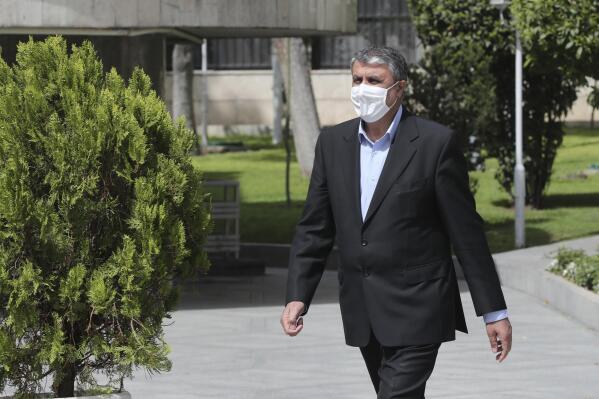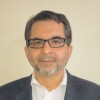Iran appoints ex-roads minister as head of nuclear agency
TEHRAN, Iran (AP) — Iran’s president on Sunday appointed a new director of the country’s nuclear department, state TV reported, replacing the nation’s most prominent nuclear scientist with a U.N.-sanctioned minister who has no reported experience in nuclear energy but ties to the defense ministry.
Iran’s newly elected hard-line President Ebrahim Raisi chose Mohammad Eslami, a 64-year-old civil engineer who previously oversaw the country’s road network, to lead Iran’s civilian nuclear program and serve as one of several vice presidents. He succeeds Ali Akbar Salehi, a U.S.-educated scientist who was a key player during the years of intense international diplomacy that led to Tehran’s now-tattered 2015 landmark nuclear deal with world powers.
The deal curbed Iran’s nuclear activities in exchange for sanctions relief, but then-President Donald Trump unilaterally withdrew the United States from the agreement and reimposed crushing sanctions. Iran, in response, has gradually and publicly abandoned all restrictions on its stockpiles of low-enriched uranium.
In 2008, when Eslami served as head of Iran’s Defense Industries Training and Research Institute, the United Nations sanctioned him for “being engaged in, directly associated with or providing support for Iran’s proliferation sensitive nuclear activities or for the development of nuclear weapon delivery systems.”
The U.N. linked the blacklisting to his “involvement in procurement of prohibited items, goods, equipment, materials and technology,” without elaborating.
During the tenure of relatively moderate former President Hassan Rouhani, Eslami served as Transport and Urban Development Minister. Before joining the Cabinet in 2018, he worked for years in Iran’s military industries, most recently as deputy defense minister responsible for research and industry.
He holds degrees in civil engineering from Detroit University of Michigan and the University of Toledo, Ohio. Iranian media did not report details of Eslami’s experience in the nuclear field, but his engineering background speaks to the country’s renewed focus on power plant construction at a time when rolling electrical blackouts have plagued the country.
Iran is building two nuclear power facilities to supplement its sole operational 1,000-megawatt reactor at the southern port town of Bushehr, which went online with Russia’s help in 2011. Under its long-term energy plan, Iran aims to reach 20,000-megawatt nuclear electric capacity.
___
Associated Press writer Isabel DeBre in Dubai, United Arab Emirates contributed to this report.




